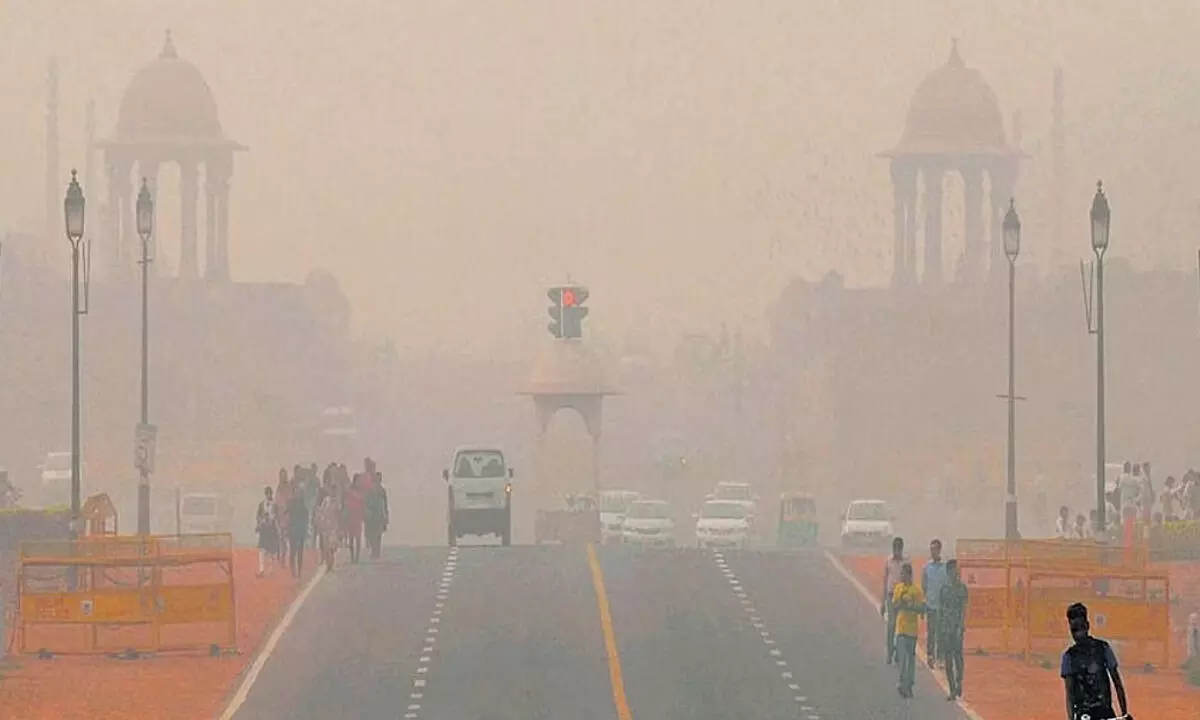Delhi's Air Quality Lingers In 'Very Poor' Category, Hopes For Relief Amid Meteorological Shift

- Despite a persistent 'very poor' air quality in Delhi, monitoring agencies anticipate relief with changing meteorological conditions.
- The city records 10 severe air quality days this November, prompting renewed calls for strict measures against pollution sources, including biomass burning and vehicular emissions.
On Sunday, Delhi's air quality persisted at the 'very poor' level, although a shift in meteorological conditions, attributed to a western disturbance, is anticipated to bring some relief, as reported by monitoring agencies. At 9 am, the air quality index (AQI) in the capital measured 385. The 24-hour average AQI, calculated at 4 pm daily, recorded values of 389 on Saturday, 415 on Friday, 390 on Thursday, 394 on Wednesday, 365 on Tuesday, 348 on Monday, and 301 on Sunday (November 19).
The AQI scale categorizes air quality as follows: 'good' (0-50), 'satisfactory' (51-100), 'moderate' (101-200), 'poor' (201-300), 'very poor' (301-400), 'severe' (401-450), and 'severe-plus' (above 450).
Delhi has encountered 10 days of severe air quality this November, a notable increase compared to three such days in November last year. In 2021, the city experienced 12 severe air quality days, marking the highest in the month since the initiation of monitoring by the Central Pollution Control Board (CPCB).
In the past, November air quality data indicates a varying trend: nine severe days in 2020, seven in 2019, five in 2018, seven in 2017, 10 in 2016, and six in 2015, according to CPCB records.
The recent surge in AQI levels follows the removal of several restrictions by the central government, including the ban on construction activities and the entry of polluting trucks in Delhi. This move, coupled with favorable wind conditions, initially contributed to a reduction in pollution levels.
A joint initiative by the Delhi government and the Indian Institute of Technology-Kanpur identified biomass burning as the primary contributor to Delhi's air pollution, accounting for 31 to 51 percent in recent days. Vehicular emissions were also significant, constituting about 31 to 40 percent of the capital's air pollution on the preceding day.
In response to the deteriorating air quality, Delhi Environment Minister Gopal Rai has instructed relevant agencies to strictly enforce restrictions on polluting vehicles and address the increasing incidents of biomass burning.


















